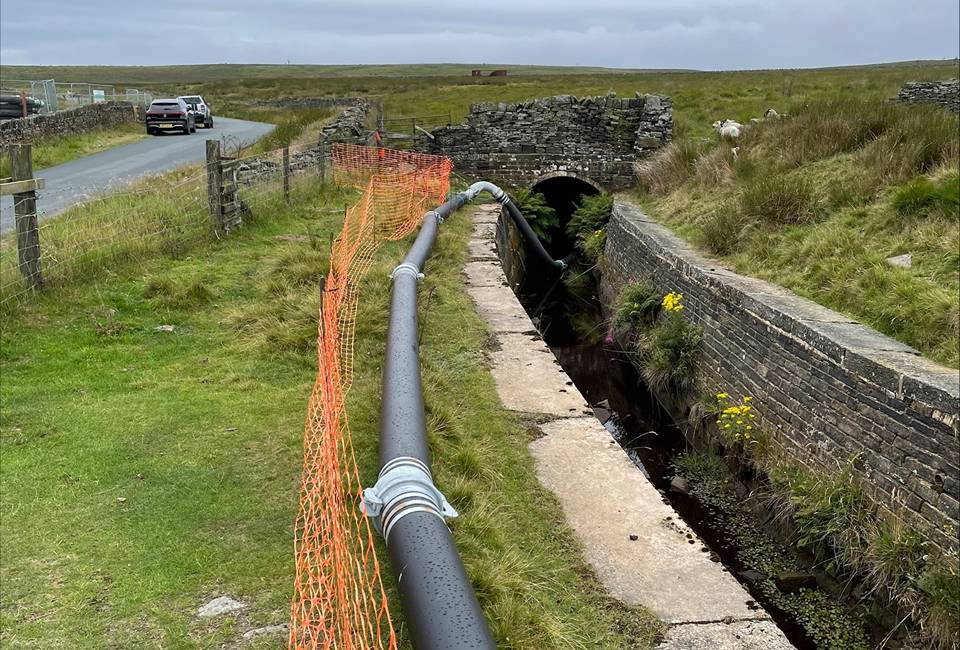Yorkshire Water begins work to protect Dunkirk Beck and the river Worth during drought

8/1/2025
Yorkshire Water has begun a project between two of its reservoirs to provide protection for Dunkirk Beck and the river Worth during the county’s drought, which was declared by the Environment Agency on 12 June this year.
Contract partner, M Group, has started installing 1km of overland pipework overland between Thornton Moor reservoir and Leeshaw reservoir, to allow raw water stocks to be moved from Thornton Moor to Leeshaw, so that it can be used as compensation flow into Dunkirk Beck, which eventually runs to the river Worth.
Compensation flows are the release of water from a reservoir to maintain downstream water flows and prevent any negative impacts on river health or wildlife due to habitat loss.
Leeshaw reservoir is currently sitting at 37% full. Whilst it doesn’t provide drinking water, watercourses downstream can often rely on flows from the reservoir.
Mark Broady, senior project manager at Yorkshire Water, said: “We’ve had the driest spring and warmest June on record in Yorkshire, and stocks in our reservoirs, groundwater levels, and river flows, have all suffered from a lack of rainfall.
“Whilst we’re working hard to manage water resources to ensure our customers can use what they need, we also have an important job to do in ensuring rivers downstream of our reservoirs are kept flowing so that we can keep them healthy, and keep the wildlife safe.
The project, costing £750,000, is using existing catchwater systems around the reservoirs to minimise the amount of pipework needed overground, in order to protect the ecology of the moors. Water will be moved 4.3km in total, via water pumps installed at Thornton Moor, before discharging into Leeshaw reservoir.
The pipe will be installed alongside a footpath that crosses the moors. During the installation phase, which is expected to take two weeks, fencing will be in place around the pipework to protect grazing livestock and the public, and the footpath will be diverted to the other side of the fence.
Mark added: “We’ve been working closely with ecologists to understand the potential impact that the installation of the pipework might have on the land and environment around it, and to try to minimise this wherever possible.”
The pumps should be completely installed and turned in early-August, and will pump up to 2 million litres of flow per day towards Leeshaw. Adequate water supplies will remain in Thornton Moor, which does provide drinking water to Yorkshire Water customers.
When drought conditions ease, and additional pumped flows into Leeshaw are no longer required, the pipe will be demobilised and removed from the moors.
